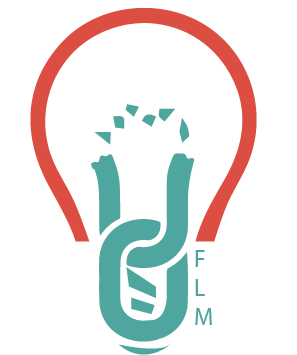Our Vision For Education
Holistic
FLM’s education structure comes from a globalized perspective that seeks to be as full of varying perspectives as possible. This means that our students take from the world an objective look at the realities of institutions and the people that create them throughout history and into today. This way of educating means a strong focus on critical thinking and hands on learning. As well as identity building so students find the passion, agency, and voice to speak as an expert on their own lived experiences. A holistic education is trauma-informed and realizes that – as Gloria Anzaldúa states – we are turtles and we carry our home on our back. Students come to class or to our initiatives to learn, but sometimes their at-home experiences shield them from fully being able to thrive in the classroom. That means it is on us as an organization to have wrap-around services and instructors who have fully grasped the importance of respecting where each student is coming from and their ability to be human.
Transformative
The norm of schooling today has become obsolete. We seek a transformative education that looks at student’s cognitive abilities from a young age and shapes them in a creative way. We know that students will be the change makers in our world some day soon and thus they need to be treated as such. We incorporate a teaching method that does away with the power dynamics of the usual student/teacher relationship. Rather, we allow students to take their curriculum and shape it into their own. This means collaborating with educators to mold their studies in ways that best suits them. We tap into the genius of every student by allowing them to think and innovate in new and fun ways that do away with the status quo of waiting one’s turn. We know that their time is now and we want them to know that as well.
Anti-Oppressive
We enact a decolonized curriculum that forces every actor in our school to understand the land that we maneuver on is indigenous land. This understanding leads all of us to work towards decolonizing all of our spaces and to create areas that do not exclude any identity.
We enact a culturally relevant curriculum because we know that classrooms full of students that mirror the diversity seen in our world today is a powerful tool for change. This means that our administrators, instructors, counselors, coaches, and everything in between will have a background that understands various cultures and is sure that the spaces that they generate are not simply accepting but intentionally inclusive of these cultures.
We enact anti-bias teachings throughout our methodologies because it is clear that one’s socialization process will lead them to prejudices and hate if not. We find this area crucial to the way we educate and know that when students are brought “big” topics at an early age it is far easier for them to understand the complexities of life and society as they mature. These teachings will be apart of our core curriculum and will create a wholly non-oppressive framework by which every student, community member, and being will feel welcome.

